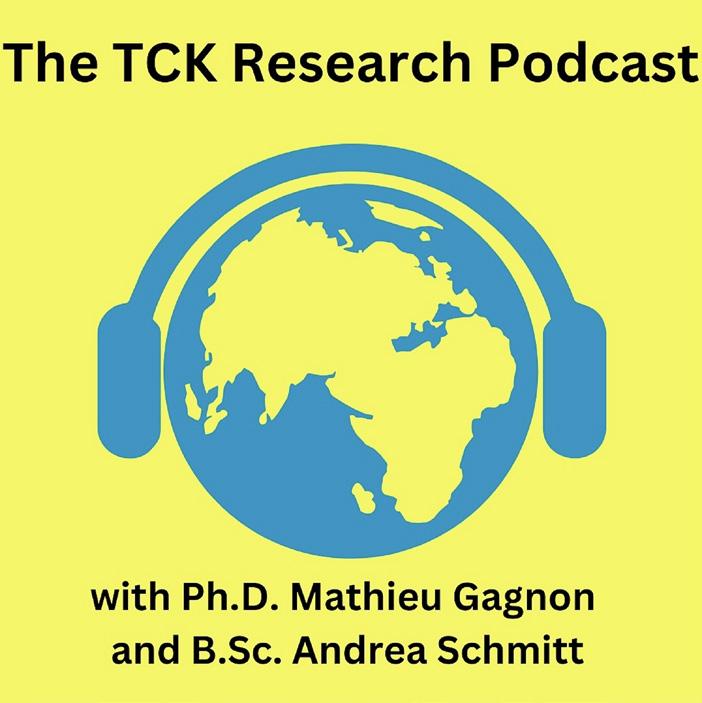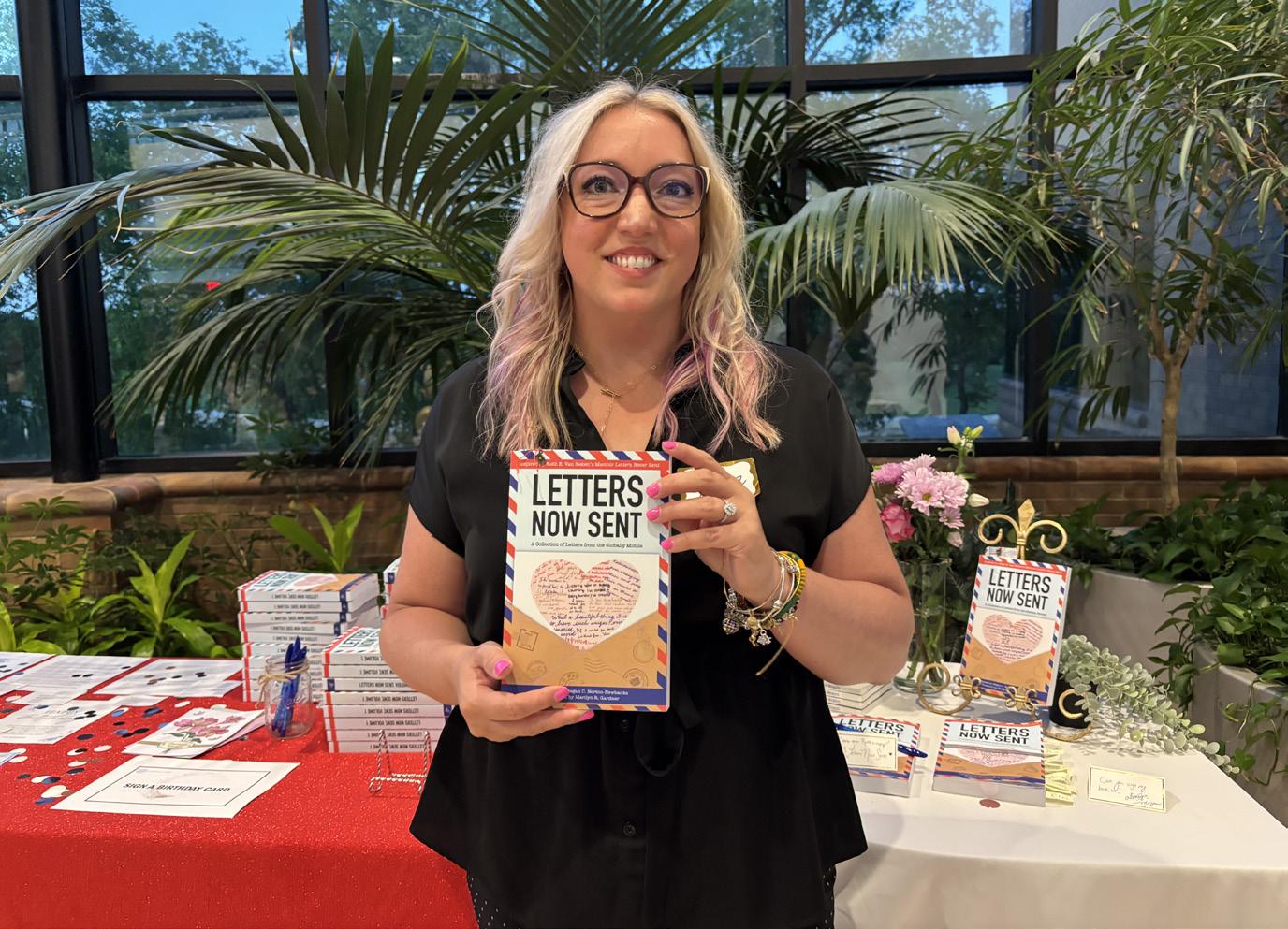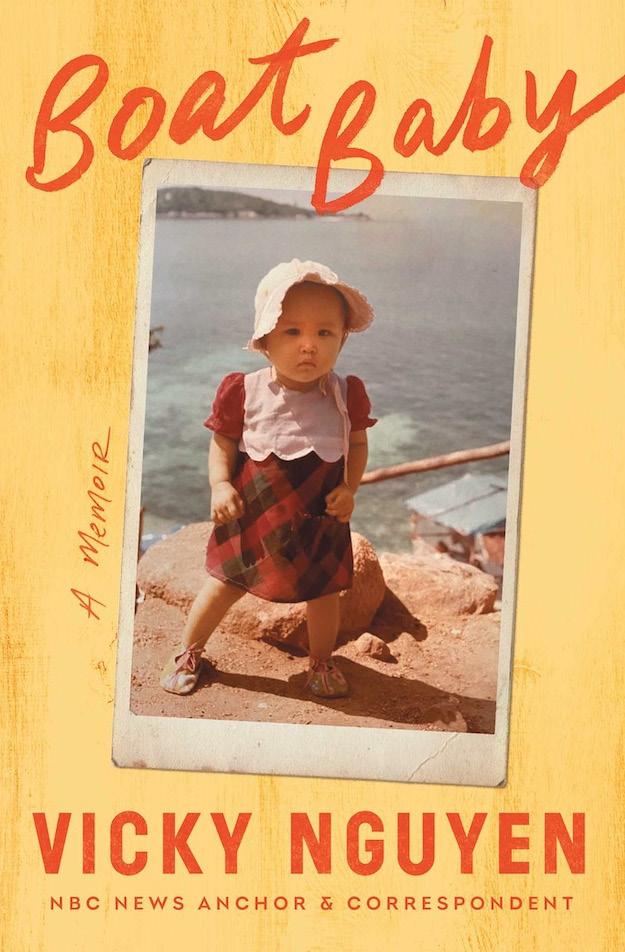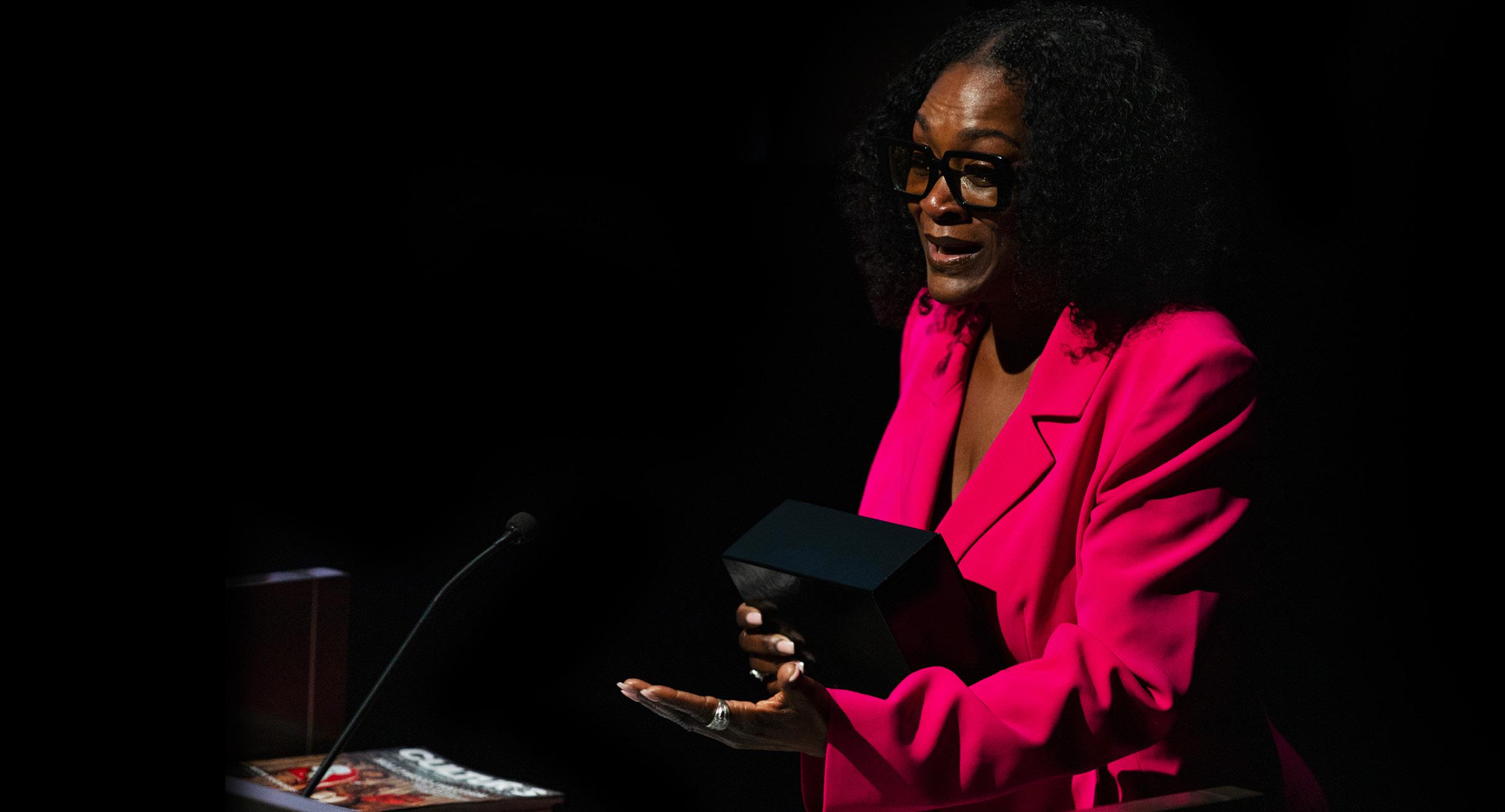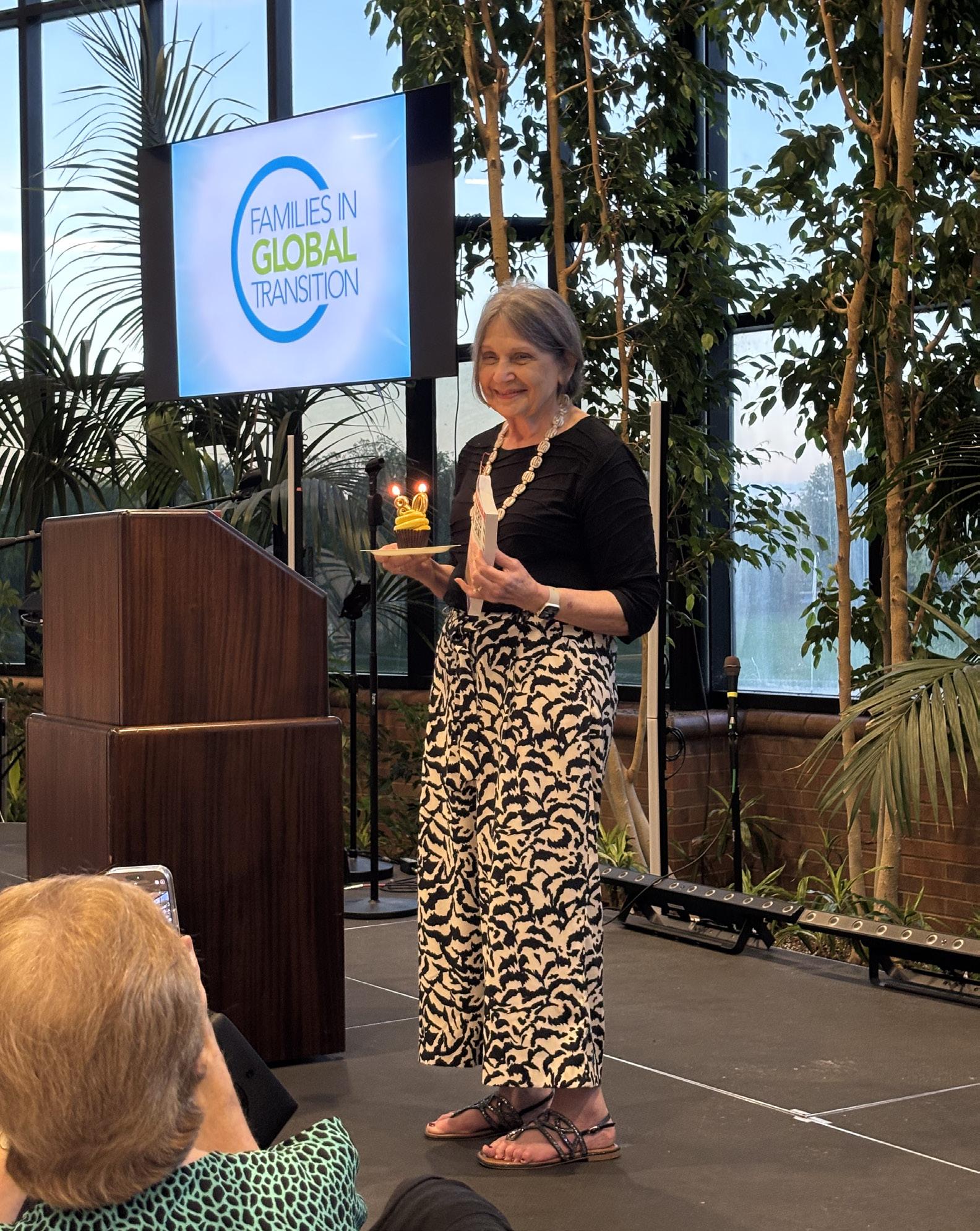
11 minute read
Pope Leo XVI, Creole Lineage and the Power of Cultural Reclamation
Hidden Heritage
This revelation stirred conversations not just about genealogy, but about the legacy of hidden heritage and cultural fluidity. For communities shaped by colonization, migration and the complexities of classification, Pope Leo’s ancestral background was not a surprise. Rather, it was a reflection of a long-standing reality: identity often survives beneath the surface until the world is ready to see it.
When Pope Leo XVI emerged in Rome, onto the balcony at Vatican City for the first time as the new head of the Catholic Church, viewers around the world watched with reverence. But for many familiar with Louisiana, La., U.S.A. Creole heritage, the moment carried an unexpected ripple of recognition.
Soon after, news broke that the pontiff’s maternal lineage traced back to New Orleans Creole ancestry — a detail that was possibly known in some quiet circles and now globally confirmed.
Louisiana genealogist Alex Da’Paul Lee, who helped uncover Pope Leo’s maternal ancestry, wasn’t searching for a headline — he was following a hunch.
“I kept seeing gaps in the story,” he explains. “And as someone rooted in Louisiana history, I recognized the patterns, the silences, the shifting surnames, the hidden legacies.”
Lee’s instincts proved right. What he found was not only a family tree, but a reflection of a broader cultural truth: that many of us carry identities shaped by both love and loss, visibility and erasure — and that naming them is itself an act of reclamation.
For communities shaped by colonization, migration and the complexities of classification, Pope Leo’s ancestral background was not a surprise. Rather, it was a reflection of a longstanding reality: identity often survives beneath the surface until the world is ready to see it.
The Pope’s lineage, as confirmed by genealogical researchers, places him within the historic context of New Orleans Creole society, a rich cultural tradition defined by French, Spanish, African and Caribbean influences. These communities often lived in the liminal space between imposed categories, navigating a world where survival sometimes meant cultural adaptation and concealment.
Strategic Invisibility
In the U.S. South, as in the Caribbean, strategic invisibility was a form of protection. That context connects directly to the stories of countless families in South Louisiana, and even more broadly across Haiti, Cuba, the Dominican Republic and other parts of the Latin-based Caribbean. These regions share a deeply entangled history shaped by colonial powers, the Catholic Church and centuries of migration and cultural exchange. It was not uncommon for families to flow back and forth across these lands, carrying with them faith traditions, language, music and the fluid markers of identity.
In such environments, cultural identity was rarely fixed. It was layered, nuanced and often hidden. Publicly, some families chose or were forced to present differently, navigating imposed identities, including passing as white when necessary for survival. Sometimes this was an act of permanency, and others done strategically by day in workplaces or while securing property and credit, only to return to their community identity at night.
In such environments, cultural identity was rarely fixed. It was layered, nuanced and often hidden.

These dual lives were shaped not by shame, but by necessity.
Banks, for example, often used addresses to infer heritage, even when appearances did not reveal it. These stories of temporary and permanent passing were often carried in silence and sometimes, in sorrow. Like many families shaped by racial classification and cultural adaptation, silence was a form of survival.
Pope Leo’s brother recalls that their mother rarely spoke about her roots in New Orleans, a pattern mirrored in many Creole households, where heritage was tucked away not to be denied, but to be protected.
Author Bliss Broyard, in her book “One Drop: My Father’s Hidden Life — A Story of Race and Family Secrets,” recounts a similar revelation.
Her father, the esteemed literary critic Anatole Broyard, passed as white for much of his life, severing ties with his Black and Creole heritage in New Orleans. In reflecting on this loss, Broyard writes not only about erasure but about what it means to reclaim.
“These aren’t just scraps of bureaucratic record. They are testaments of identity — of presence. Every time a name was written down or crossed out, every time a racial classification changed on paper, it represented a negotiation. Sometimes an act of love. Sometimes resistance. Sometimes both,” writes Alex Lee. Continuing to reflect, Lee adds that genealogical discoveries often carry an emotional weight, especially when names reappear after generations of silence.
“For many families, uncovering a hidden ancestor isn’t just data, it’s dignity. It brings language to legacies that had no name,” he adds.
Lee further ponders about what cultural restoration might offer to those who have long felt split between who they are and who the world allowed them to be.
This is the heart of what Pope Leo’s lineage unearths — not scandal, but story. Not controversy, but connection. In an era often marked by polarization and rigid categorization, it offers a rare invitation: to view identity not as a dividing line, but as a living bridge. The story doesn’t disrupt, it reveals. And in that revelation, there is opportunity.

For one cultural commentator with Louisiana Creole roots, the Pope’s appearance sparked an immediate sense of familiarity.
“Something in him reminded me of my mother’s family,” she shares. She was not alone. Others in genealogical and cultural communities voiced similar sentiments surrounding gestures of recognition, not from documentation, but from memory, intuition, and legacy. Even when cultural roots weren’t named aloud, they lived on in quiet, faithful acts — like preparing meals for local priests, a gesture Pope Leo’s brother remembers from their childhood.
Cultural Fluidity
“Cultural fluidity,” once seen as a liability, “is increasingly recognized as a superpower,” says Culturs founder and CEO, Elleyne Aldine, the person who originally coined the term to describe the lived experience of navigating multiple cultural frameworks.
For years, those who moved fluidly between cultural spaces, like Third Culture Kids (TCKs), immigrants, diplomats and global nomads were misunderstood. Their adaptability was mistaken for inauthenticity. Their ability to shift languages, norms or behaviors was sometimes met with suspicion rather than admiration.
Yet that very agility, the capacity to bridge worlds, has become one of the most vital leadership traits of our time.
As genealogist Alex Lee notes, “Adaptability and blended heritage aren’t things to hide; they’re things to recognize, honor and learn from.”
In recent reflections, Aldine has observed how this dynamic, adaptive nature enables those who embody it to lead, connect and rise, not in spite of their complexity, but because of it. A perspective that not only resonates with this moment but may help explain how individuals like Pope Leo rise, not despite their lineage, but because of the insight it brings.
Their adaptability was mistaken for inauthenticity. Their ability to shift languages, norms or behaviors was sometimes met with suspicion rather than admiration.
Cultural reclamation, especially among Creole and other multicultural communities, is not just about celebrating roots. It is about healing. It is about restoration. And sometimes, when the world is watching, it is about rising.
In the quiet spaces between past and present, the stories that were once hidden in plain sight begin to bloom. Not for validation, but for truth. Not for headlines, but for wholeness. The ancestry of Pope Leo isn’t a surprise — it’s a reflection, a mirror held up to how families adapt, protect and in time, reclaim.
“To rise from a lineage that once had to be hidden is not only symbolic, it is sacred,” as Lee reminds us. “This isn’t just about one man’s ancestry. It’s about recognizing the complexity in all of our histories.”
Pope Leo XVI’s path to the papacy, intentional or not, is part of that unfolding sacred story. Lee adds that the Pope’s visibility opens the door to conversations that have long been whispered: about families separated by fear, about identities silenced for survival and about the dignity of naming who we are and where we come from.
For those carrying lineages long kept quiet, the Pope’s ascent is more than a moment, it’s a mirror. It invites us to consider how stories once silenced may find their voice again, not in protest, but in presence.
To learn more about the Pope’s lineage, scan the code below. cultursmag.com/hidden-in-plain-sight-pope-leo-xvi-

By Myra Dumapias


While the transition from high school to college is a significant milestone for Third Culture Kids (TCKs), often ending a pattern of frequent moves, for TCKs who become parents, the college transition of their child can be a chapter of profound grief beyond what’s anticipated.
In social conversations, the college transition for parents is often reduced to the two-word nominal term “empty nester.” However, the transition itself is much more involved and deserves its own grief process.
Being a parent is one of the most vulnerable relationship roles a person can have. The many instances of losing close friends, favorite teachers or role models and favorite local spots and comfort food, especially when repeated, lay deep in the emotions of TCKs, as they occur during the developmental years.

Yet, being a parent, holding responsibility for another human being’s developmental years, is a role designed to prepare someone to part ways. Parents love with their all to one day let go. Parenthood is a continuous journey of moving between the various roles from provider, nurturer, guide, educator, disciplinarian, protector and more. To do it right, parenting demands confronting your fears, insecurities and blind spots as well as applying your characteristic strengths, earned wisdom and from day one, natural instincts.
Of these natural instincts, the instinct to make room for offspring in one’s nest, from the half-awake feedings for a newborn, to the grocery lists with your child’s snacks, to the routine of coming home on a Friday in anticipation of a weekend with your child, doesn’t simply switch off when they turn 18.
THE DAY OF THE SEND-OFF
Keep calm and cry in the car on move-in day. Unless you have an expressionless-cry face that allows you to tear without the dramatic expressions or don’t mind people seeing your cry today, cry in the car before you step out and when you step back in. If you have any emotional words to say that you didn’t get a chance to say before you left the house, say them in the car, before the hustle and bustle of moving things in your young adult’s room. Chances are, however that you all will be too busy on this day to have time to be as emotional as you have been at home. Try to save your emotions for when you are away from your young adult to lessen the possible emotional impact on them. They may seem emotionless today or can’t wait to break free. However, know there is much going on within them as well. They may be fighting tears themselves. It helps to have a companion or other family members during this send-off for emotional support and help ensure you are driving safely.
Get out of the way helpfully. Allow your young adult to focus on what they need to get done in the way that makes sense to them. There is most likely a part of them, even if it is small, that is trying hard to not succumb to the overwhelming mixture of sadness, excitement, fear and tremendous courage. Helping with practical things that won’t get in their way of taking charge of how to handle move-in day and the move-in week schedule can bring out your young adult’s personal self-determination. In turn, seeing your young adult’s sense of self-determination can help you as a parent have less concerns about their adjustment. If they make mistakes, it helps them make better choices.
DAY ONE OF BEING THEIR OWN BOSS.
Today is a day your young adult will need to be the boss while receiving your ageappropriate guidance. It’s a smoother drop from being a co-boss on move-in day to being the only boss after the family leaves for your young adult than being completely dependent on parents until the last minute. Allowing them to take ownership of their decisions and balancing the parental task of guiding your child will require you to be flexible today. Your young adult is most likely trying their best to be strong and brave.
It would be wise to still provide solid and well-timed guidance of important matters, such as making decisions that ensure personal safety and security, knowing the common traps that target college kids for money and practicing fiscally sustainable options for purchasing textbooks and supplies. However, as young adults, they will only need to be shown how to do such things so they can practice making these decisions themselves. In reality, your guidance as a parent will not really end, but will likely involve more and more respect.
Find your co-supervisor in your young adult. Certain things like billing and matters related to your child’s student account will still need to be supervised by you as a parent, but you can start to share that responsibility with your young adult. Your guidance will be teaching them how to supervise it themselves and as a co-supervisor, follow up on anything confusing or overwhelming while allowing them to be part of finding the solution.

The Drive Away
Your young adult in your mirror is closer than they appear. For some parents, there may be an urge to follow your child like a parent peering around a corner to watch their child on the first day of preschool or kindergarten. The instinct to watch over our children never ends. However, rest assured that while the days of bonding and closeness during childhood become part of the past, that bond only transitions in type and is simply adjusting to make way for your young adult to grow.
Parents love with their all to one day let go.

How do you just leave the child you raised every day for almost two decades and just drive off? By knowing the bond will continue, just in a different way and letting go until this new stage of parenthood starts to feel like a different type of adventure with new challenges and rewards.
What To Expect When You Get Home
Some parents may feel a sense of emotional displacement when they get home. Eighteen or so years of default emotions that come with being parent of a growing child is a long time to live out day in and day out. Despite the rational knowledge your child will one day go to college, it doesn’t prepare you for the emotional process. The logical understanding of the college transition is intertwined but not concurrent with the emotional process.
The sense of emotional displacement can come from a series of “minus-one” sudden realizations in a parent’s thought processes and associated emotions, especially during regular daily routines. You may catch yourself sitting at work suddenly remembering you won’t need to prepare as much food for dinner. You may be driving on a street on a regular route and suddenly remember your child isn’t just several miles away, waiting at home. You may walk through the grocery aisle past your child’s favorite snack, feeling hollow. These can be excruciating moments of grief you didn’t expect. The “minus-one” sudden realizations land harder on our emotions than our intellect. It will simply take time to live through reassigning different emotions to the various routines slowly, one by one, day by day. These emotions of grief can be so intense. Some parents may even wish the best years of raising their child(ren) would never end. However, just as we became our own adults, we parents have to think forward because it’s in the days ahead that we find a balm for the past that we miss so dearly.

Letting Your Love Cherish The Past While Meeting Your Child In The Present
If we move forward alongside our adult children, we get to watch them become who they will be to their friends, work colleagues and community, with fresh eyes that grow to respect and honor the journeys they are on, the joys they cherish, and recognitions they will have earned on their own right. The best part is: the adult person you grow to become proud of is the same little person you raised and it only adds to what you already cherish about them, never subtracts.
Just as you experienced a love so profound when you raised your child knowing one day you’ll let go, you only learn just how deep that love goes after you do.
Try to save your emotions for when you are away from your young adult to lessen the possible emotional impact on them.

To learn more about sending TCKs off to college, scan the code below. cultursmag.com/the-send-off-to-adulthood-a-tck-


